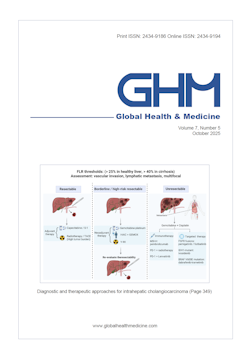Global Health & Medicine 2024;6(2):149-155.
Development of aids to relieve vulvodynia during the postpartum period
Watanabe K, Totsu Y
Postpartum women live with a low quality of life due to pain caused by episiotomy and perineal laceration. In particular, they endure pain when sitting for long periods of time to breastfeed. The purpose of this study is to develop a sitting aid to alleviate postpartum vulvodynia. This study was conducted in the following four phases from July 2017 to May 2019. They are: material selection and molding, cleaning and disinfection testing, pressure distribution measurement testing, and trial testing by postpartum women. The main material was a 100% polypropylene object with a three-dimensional reticular fiber spring structure and fiber density of 3.8 kg/m2. As a result, a sitting aid that withstands washing and disinfection well in the medical field and is breathable. It had moderate resilience and elasticity and reduced pressure on the seating surface for women weighing approximately 45 kg and 55 kg, but we were skeptical about its use for women weighing more than that. The completed sitting aid is noninvasively effective in improving the quality of life of many postpartum women, but the density and thickness of the main material should be reexamined to meet the needs of women in a wider weight range. In addition, a self-administered questionnaire survey of trial users revealed that some women did not experience relief from vulvodynia even after using the sitting aid. Such women also had physical problems such as discomfort in the lower back, difficulty breastfeeding, and difficulty standing up. For women with multiple physical problems, individual causes should be addressed.
DOI: 10.35772/ghm.2023.01045







